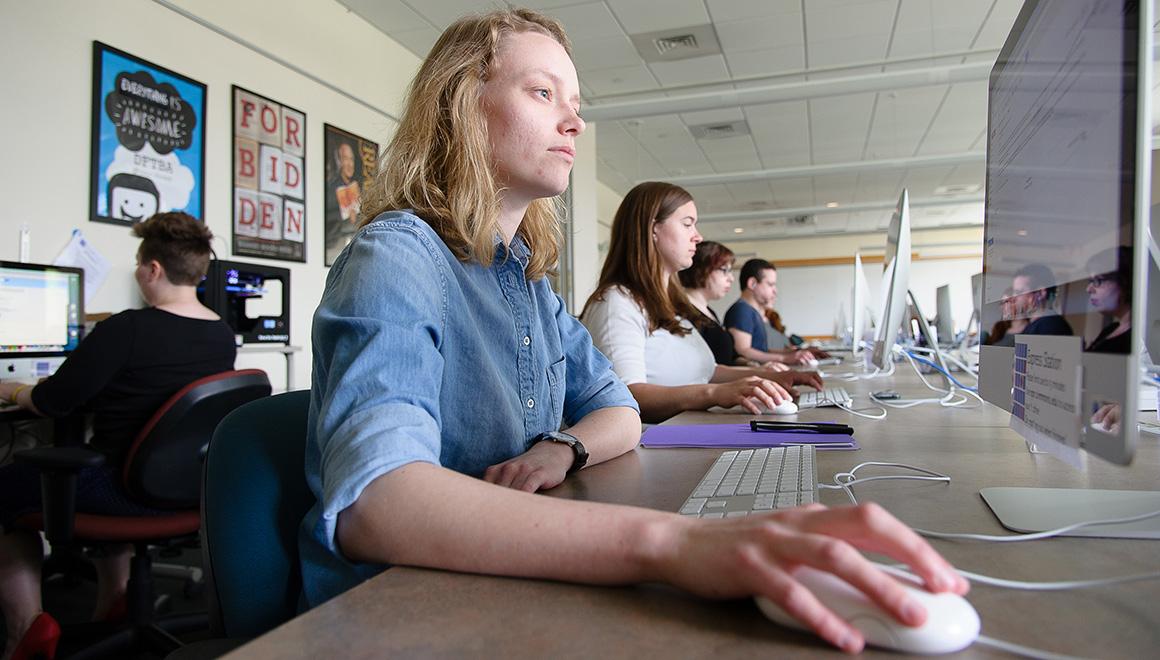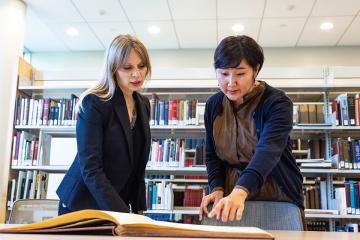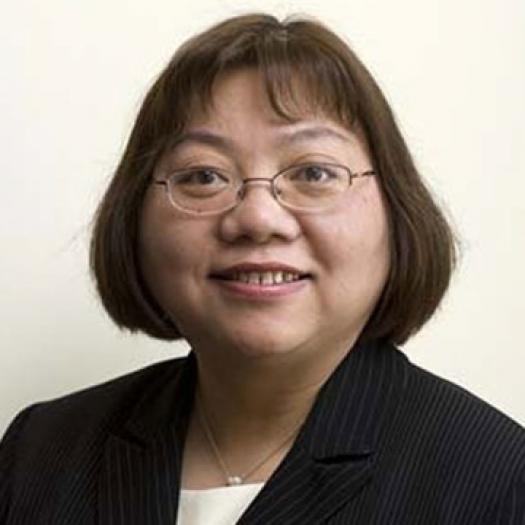Library and Information Science: Information Science and Technology Concentration
The Master of Library and Information Science (MS): Information Science and Technology Concentration at Simmons University is a flexible, highly-inclusive program that combines theory, hands-on competencies, and understanding of professional practices to expose students to the kinds of knowledge they’ll be expected to know as an information professional.

Technology is increasingly an integral part of the Library and Information Science profession. Our Information Science and Technology Concentration is designed for students who are interested in developing skills and knowledge in information technology, while maintaining a strong grounding in human information behavior and the service orientation of Library and Information Science.
The skills and knowledge gained in this concentration prepare graduates for careers in libraries, museums, archives, management of information systems and also for data-rich business and research settings.
Students in the Master’s in Library Science: Information Science and Technology Concentration have the option to complete their degree entirely online. In addition to face-to-face classroom options in Boston and at SLIS West (Greenfield and Amherst, Massachusetts), students can select a blended approach, combining online and face-to-face courses that meet their academic needs.
Why study in the Information Science and Technology Concentration?
Students who graduate with the Information Science and Technology Concentration will have an understanding of major theories in information science and be able to apply them to specific research or professional contexts; fundamental programming knowledge and skills; skills in database design and application; and proficiency in one or more areas in information science and technology within the user-system continuum — all with an eye for creating and working in socio-technical environments that appreciate the diversity and complexity of today’s information settings.
What will you learn?
The Master of Library and Information Science: Information Science and Technology Concentration is a 36-credit program that imparts the concepts and competencies needed for positions in a variety of information settings. In addition to three core courses in library and information science, Information Science and Technology students take three core courses in the areas of programming, database management and theories in information science. They also complete two electives focused on information science and technology and four electives that can serve to bridge across other areas within library and information science.
Simmons' Master's in Library and Information Science has attained an outstanding reputation for first-rate internships — essential for success in the field. We strongly encourage all students to gain experience in the field prior to graduation, and we help students connect with the best sites for their career goals.
Our location in Boston opens up opportunities for partnerships with a range of information technology companies, IT start-ups, libraries, archives, and historical sites, but our contacts also extend across the country. We work with you to obtain a challenging internship in your area and offer continued support to ensure that your experience meets your professional goals.
What can you do with an Information Science and Technology Concentration?
Simmons University is one of U.S. News and World Report’s top ranking schools of library and information science. The winning combination of our Master's in Library and Information Science plus exceptional work experience puts Simmons' graduates in a strong position to find employment after finishing their program.
Library and Information Science graduates report that their pre-professional work experience helped them to identify which environments and jobs were right for them, while also building their networks. Students will leave the program qualified for a range of positions such as:
- Systems analysts
- Systems librarians
- Knowledge managers
- Web developers
- Web content designers and managers
- Information architects
- Usability specialists
- User experience (UX) designers
- Information behavior researchers
- Interaction designers
- IT managers
- Requirement analysts
- IT support specialists
- Database developers
- Social media managers
- Digital collection managers
Learn more about our Information Science and Technology Concentration!
Take advantage of what Boston has to offer while taking library science degree courses on a flexible schedule, with classes held on days, nights, and weekends. Or, join Simmons from anywhere — the option to complete the Information Science and Technology Concentration online provides the utmost flexibility for students from every corner of the world. Learn more about why the Master of Library and Information Science with a concentration in Information Science and Technology at Simmons is the perfect fit for you. Request more information today!




